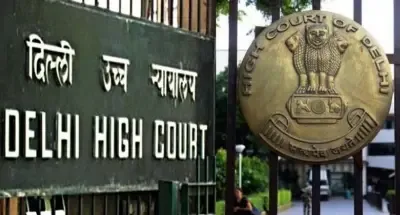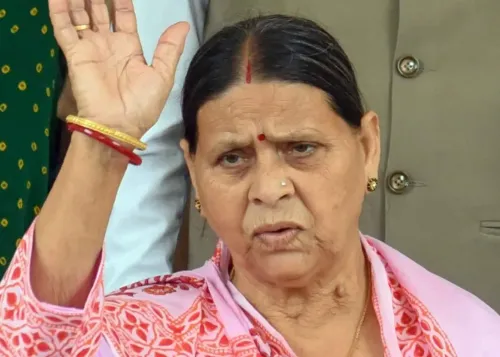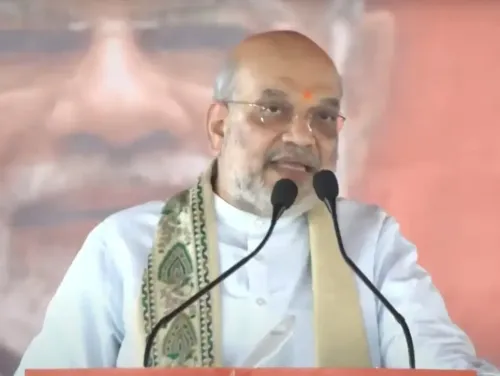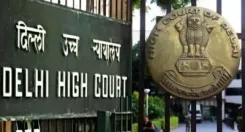Gujarat CM Leads 'Health Diplomacy Dialogue' in Gandhinagar
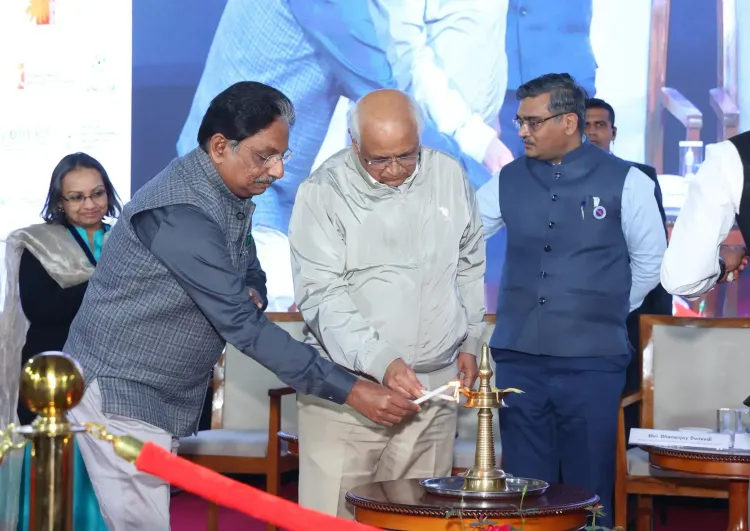
Synopsis
Key Takeaways
- India's Global Role: India provided vaccines to over 100 countries during the pandemic.
- Health Diplomacy Dialogue: Aimed at improving health security in Global South nations.
- Healthcare Infrastructure: Gujarat has over 11,000 healthcare institutions.
- Medical Tourism: Gujarat is experiencing rapid growth in medical tourism.
- Commitment to Healthcare: Ongoing efforts to establish medical colleges in every district.
Gandhinagar, Jan 17 (NationPress) Gujarat Chief Minister Bhupendra Patel remarked on Friday that under the guidance of Prime Minister Narendra Modi, India has embodied the essence of Vasudhaiva Kutumbakam (the world is one family).
He emphasized that during the formidable challenges posed by the COVID-19 pandemic, India reinforced its stance as a global ally by supplying vaccines and medications to over 100 nations.
Previously, the Chief Minister launched the 'Dialogue on Health Diplomacy', organized by the Gujarat Health and Family Welfare Department and the Indian Institute of Public Health, Gandhinagar, in collaboration with the Ministry of External Affairs’ Policy Planning and Research Division.
The main objective of this dialogue is to investigate the potential contributions of Indian policies and best practices within the Global South Countries. Significant discussions focused on enhancing global health security, alleviating poverty, and promoting equity through collaboration among Global South nations.
The Chief Minister accentuated India's crucial role in improving access to generic medicines and aiding pharmacy regulations in Global South countries under the Prime Minister’s leadership.
He expressed confidence in India's capability to tackle intricate global health challenges, deeming the dialogue an essential platform for showcasing India’s innovative solutions to worldwide issues.
Under Prime Minister Narendra Modi's leadership, India has achieved remarkable advancements in the healthcare sector over the last decade. The emphasis has been on advancing preventive healthcare, guaranteeing access to quality medical services for all citizens, building modern healthcare facilities in rural regions, and establishing medical colleges and research institutions in urban areas.
The Chief Minister pointed out Gujarat's advancements under the Prime Minister's guidance over the past 23 years. Gujarat boasts more than 11,000 healthcare institutions, including Ayushman Arogya Mandir, medical colleges, and cutting-edge hospitals, all dedicated to improving the health and wellness of its citizens.
The Chief Minister also acknowledged Gujarat's achievement, as the state has ranked first for two consecutive years in NITI Aayog's Sustainable Development Goals in the 'Good Health and Well-being' category.
With a robust healthcare framework, Gujarat is swiftly becoming a major hub for medical tourism, experiencing a 33 percent growth rate in this sector, which is 13 percent above the national average. The Chief Minister expressed optimism that initiatives like the 'Dialogue on Health Diplomacy' will be pivotal in confronting global healthcare challenges.
Health Minister Rushikesh Patel, in his address, underscored the transformation of Gujarat’s healthcare system into a world-class entity under the guidance of then Chief Minister of Gujarat and Prime Minister Narendra Modi.
He credited PM Modi for the vision behind the establishment of the Indian Institute of Public Health (IIPH), which aims to enhance health research and is modeled after esteemed institutions like IITs and IIMs.
The Health Minister highlighted significant improvements in Gujarat's healthcare, such as reductions in child and maternal mortality rates, prevention of non-communicable diseases, and the establishment of a comprehensive healthcare structure, spanning from primary health centers to civil hospitals.
Consequently, Gujarat has been ranked first in the country regarding health-related SDG (Sustainable Development Goals) in the NITI Aayog index. He reaffirmed the government's commitment to creating medical colleges in every district and ensuring that even the most remote areas have access to high-quality healthcare.
The Minister also pointed out that the Prime Minister’s vision of an Ahmedabad Civil Medicity is nearing its completion, with the state, under the Chief Minister's leadership, progressing in the construction of Medicity zones.
Rushikesh Patel expressed confidence that Gujarat will evolve into a model state by 2047, fueled by comprehensive growth in health, education, industry, and other sectors.
Kajari Biswas, an IFS officer from the Ministry of External Affairs, praised the organization of the Health Diplomacy Dialogue, emphasizing India's leadership in the health sector.
Biswas noted that while India has made impressive advances in technology, it has also embraced traditional practices such as Ayurveda, Yoga, and Homeopathy.
The development of an indigenous vaccine during the COVID-19 pandemic was a groundbreaking achievement.
He also recognized the international acknowledgment of India’s successful G20 hosting and the global commendation for initiatives like the CoWIN app.

